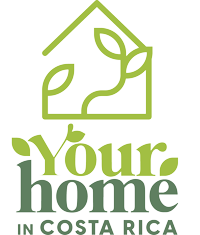Costa Rica, often dubbed the “Land of Pura Vida,” is a paradise for many expats seeking a laid-back lifestyle amidst stunning natural beauty. However, when it comes to budgeting for your life here, the choices you make can significantly impact your expenses. Just like anywhere else in the world, Costa Rica offers a wide range of living options, from budget-friendly to luxurious.
Let’s explore how your lifestyle choices can affect your finances in this tropical haven and find out how you can buy your house in Costa Rica, all while considering the advantageous tax landscape.
1. Defining Your Lifestyle in Real Estate
Costa Rica caters to diverse lifestyles in real estate. Before you can budget effectively and buy your house in Costa Rica, you need to ask yourself what kind of life you want. Do you dream of a beachfront villa with all the amenities or are you content with a cozy mountain cabin? Do you want to be in the city or more secluted?.
2. Schooling Expenses
For expat families, schooling is a significant expense. The cost of education in Costa Rica can vary widely. On average, bilingual schools tuitions are around $500 per month per child.
3. Dining Out or Cooking In
Eating habits also play a significant role in your budget. Dining at restaurants can range from $20 to $80 per person, but cooking at home can save you a bundle. If you’re not a culinary expert, hiring a chef for around $6 per hour can be a cost-effective solution.
4. Domestic Help
Many expats hire housekeepers, and they typically charge around $4 per hour. It’s an excellent way to free up your time, but it’s essential to budget for this expense.
5. Electricity Costs and Choosing the Right Location
Your location in Costa Rica can significantly affect your electricity bill. If you live in a hot area where you need to run the AC all day, expect a bill upwards of $2000 per month. However, in cooler mountain regions, it can be as low as $50.
6. Buying a car in Costa Rica
Owning a car in Costa Rica can be costly. Cars range from $20,000 and upwards. You’ll also need to budget for annual expenses like the “Marchamo” (around $200), revision tests ($20), and insurance (around $800 annually). Factor these costs into your transportation budget.
7. Grocery Shopping
The cost of groceries depends on your preferences. Shopping at local markets can be budget-friendly. Check prices online at stores like Walmart or Maxi Pali. If you prefer fresh, organic produce, look for farmer’s markets like the one in Perez Zeledon.
8. Communication Costs
For mobile phone plans, expect to pay between $25 and $50 per month. Internet costs range from $32 to $180 monthly, depending on speed and availability in your area.
9. Real Estate and Housing Expenses
When considering real estate and housing costs, renting a house can be one of your most significant expenses. Prices vary widely from $500 for basic accommodations to $2000 for more luxurious options. Consider your needs and budget when choosing your living space or real estate investment.
10. Tax Advantages
One notable advantage of living in Costa Rica is its tax-friendly environment. Costa Rica does not charge taxes for incomes earned outside the country. Moreover, property taxes are generally low, at approximately 0.25% of the municipal value of the property, making real estate investments more attractive.
In Costa Rica, the cost of living and real estate is a customizable experience. How much does it cost to live in Costa Rica and buy your house here? I cannot tell you how much you are going to spend on your real estate dream because I do not know the things you want to have. But I can give you the information so you can research and make your own plans and decisions. With careful planning, consideration of your lifestyle choices, real estate ambitions, and the favorable tax landscape, you can enjoy the pura vida without breaking the bank in this beautiful country.
